BLAST
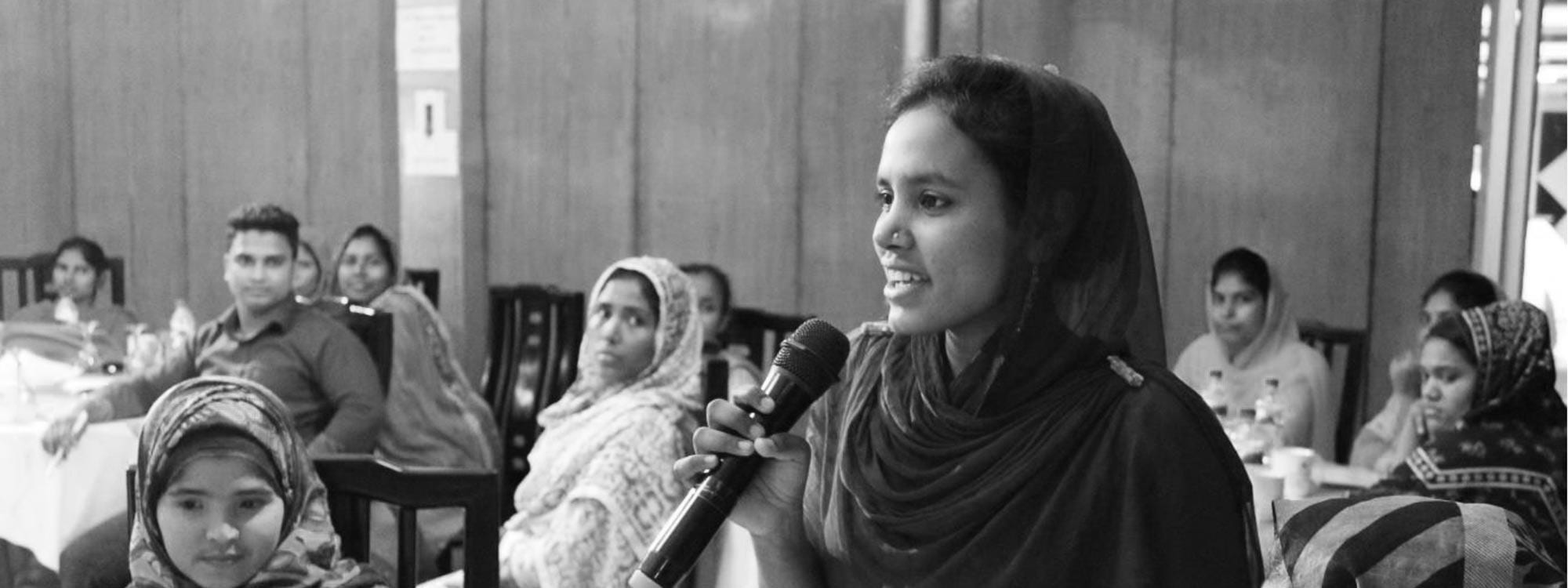
Location
Bangladesh
Sector
Gender
Type of Investment
Grant
Project Stage
Test & Transition
Length of Investment
2023+
Website
Investment Overview
GIF awarded a $805K grant to the Bangladesh Legal Aid and Services Trust (BLAST) and King's College London to deliver and evaluate a new programme designed to reduce child marriage amongst girls aged 12 to 17 years.
The Development Challenge
Child marriage is a violation of human rights which adversely affects the education, health and well-being of girls and perpetuates cycles of poverty. A staggering 59% of women in Bangladesh, a country of 160 million, marry below the age of 18. The current law in Bangladesh that addresses child marriage is the 2017 Child Marriage Restraint Act (CMRA) which sets the minimum age of marriage for a male as 21 years and for a female as 18 years. CMRA criminalises contracting, allowing, or solemnising of a child marriage. In 2018, the Child Marriage Restraint Rules provided details of the formation and responsibilities of Child Marriage Prevention Committees, along with other functional details. However, as both the Act and the Rules are relatively new, there remains a societal need to increase understanding and act on the new legal regime set up for restraining child marriages. Early female marriage is a complex issue embedded in poverty and deep rooted social norms, that require a multi-faceted community level intervention approach.
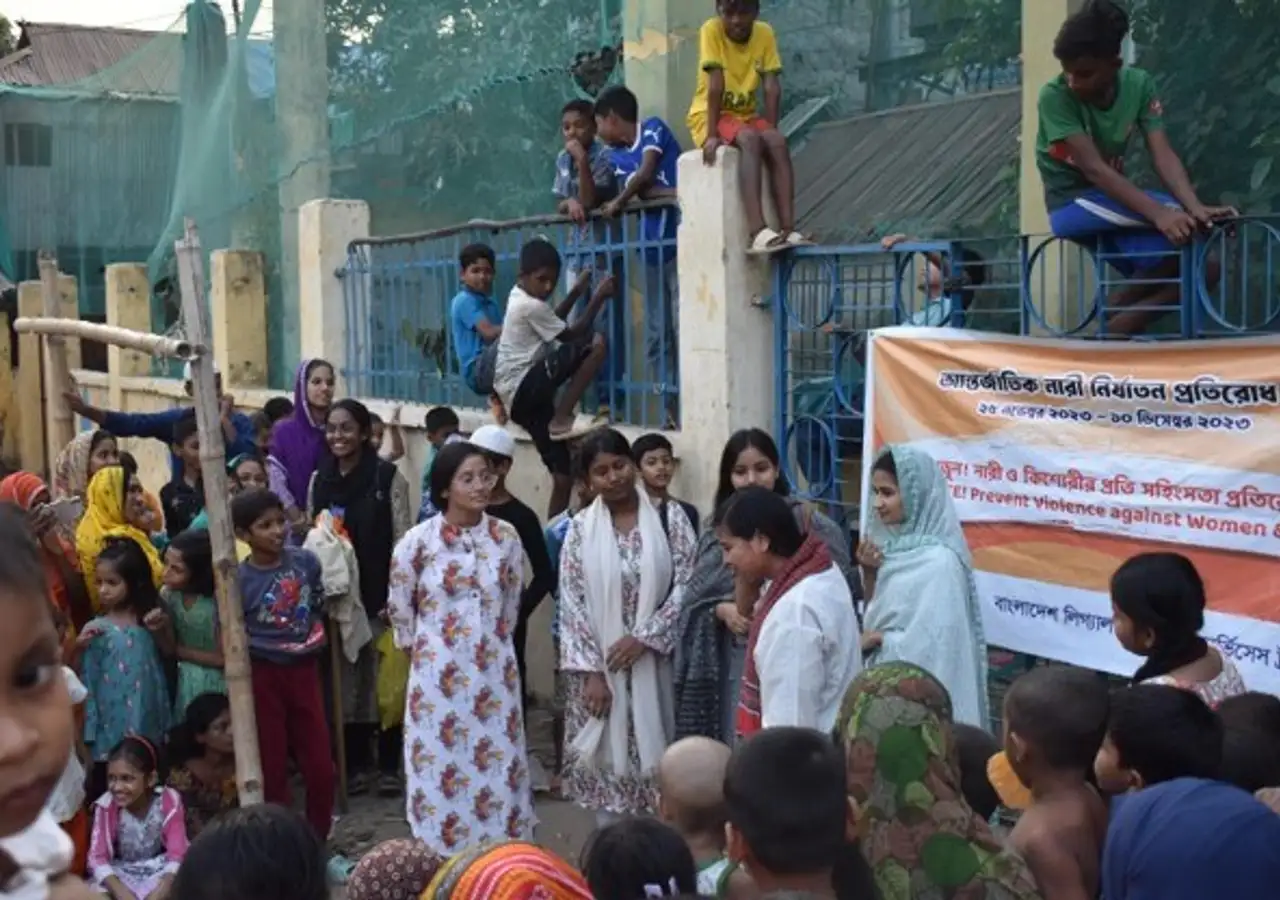
The Innovation
BLAST’s innovation, SafePlus, empowers youth groups to tackle early female marriage by providing leadership, negotiation and legal training, supervised and delivered by experienced paralegals. The groups are mentored and equipped to deliver activities and legal support within their communities. Compared to existing programmes in the adolescent space, BLAST’s unique innovation lies in providing legal training and building paralegal capabilities through grassroots youth network development. Its long-term vision is to establish a high impact, cost-effective and scalable model that allows for CMRA to be leveraged and implemented to prevent early marriage. BLAST will build on existing partnerships to scale up through augmenting existing youth programming. The innovation aims to reach 50 communities across four districts (some 30,000 households) over the grant period.
Alongside delivering its model, BLAST will partner with King's College London on conducting a Randomised Controlled Trial (RCT) to evaluate the programme’s impact and cost-effectiveness. This will measure outcomes such as delays in marriage and child births, reduction in school dropouts and improvements in women and girls’ agency. The RCT will cover 100 urban neighbourhoods and 30,000 households.
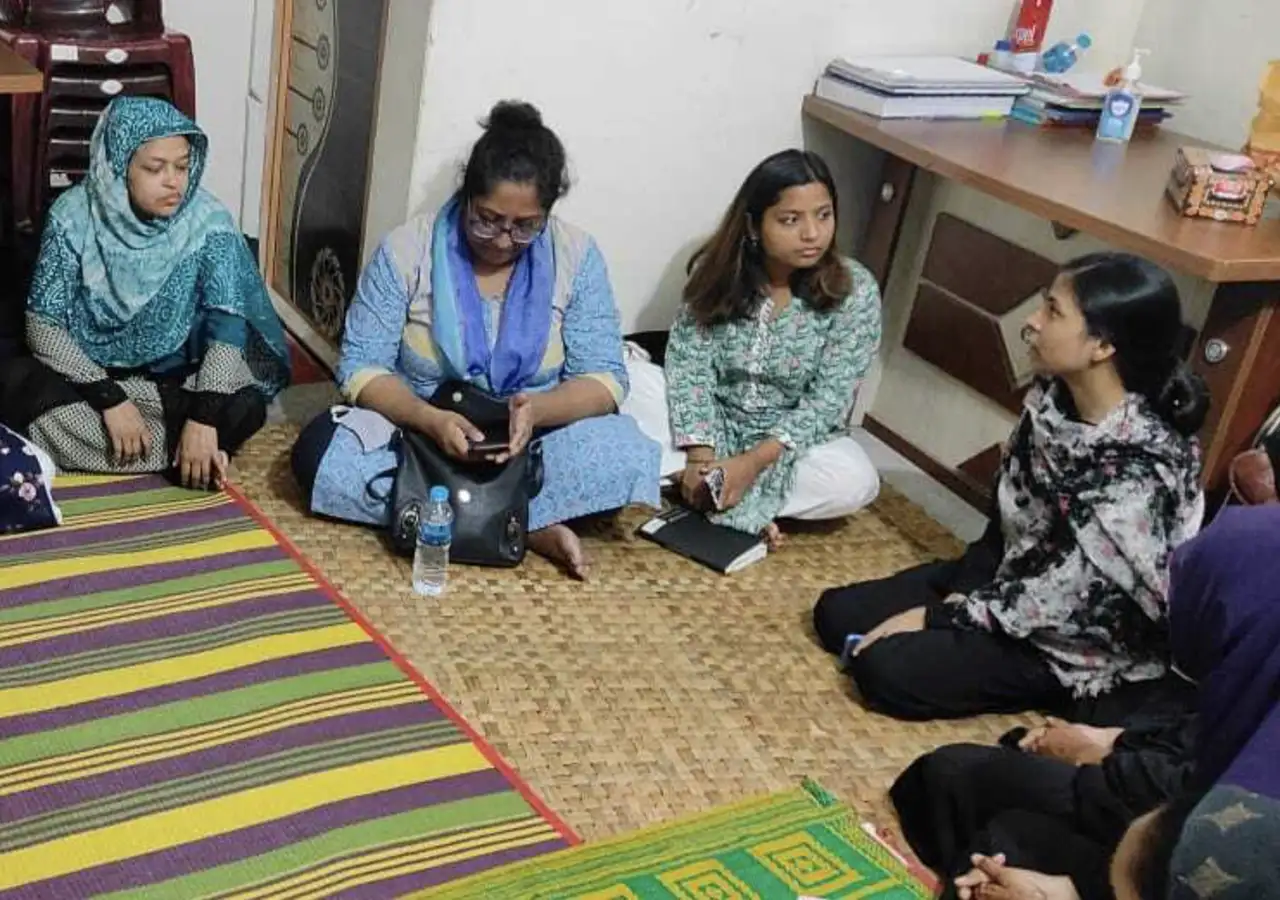
Our Investment
GIF provided a USD 805,000 Test and Transition grant for BLAST and King's College London to test and position for scale it’s innovation to reduce child marriage in Bangladesh. The funds will be used to deliver a cost-effective and scalable youth intervention program, where youth groups will receive paralegal training, mobilise their communities and identify and support peers at risk of child marriage. Additionally, the funds will also be used to rigorously test this model through a randomized control trial evaluation. The funds will also be used to develop partnerships to scale the SafePlus intervention via non-governmental youth programmes and strengthen the existing legal infrastructure.
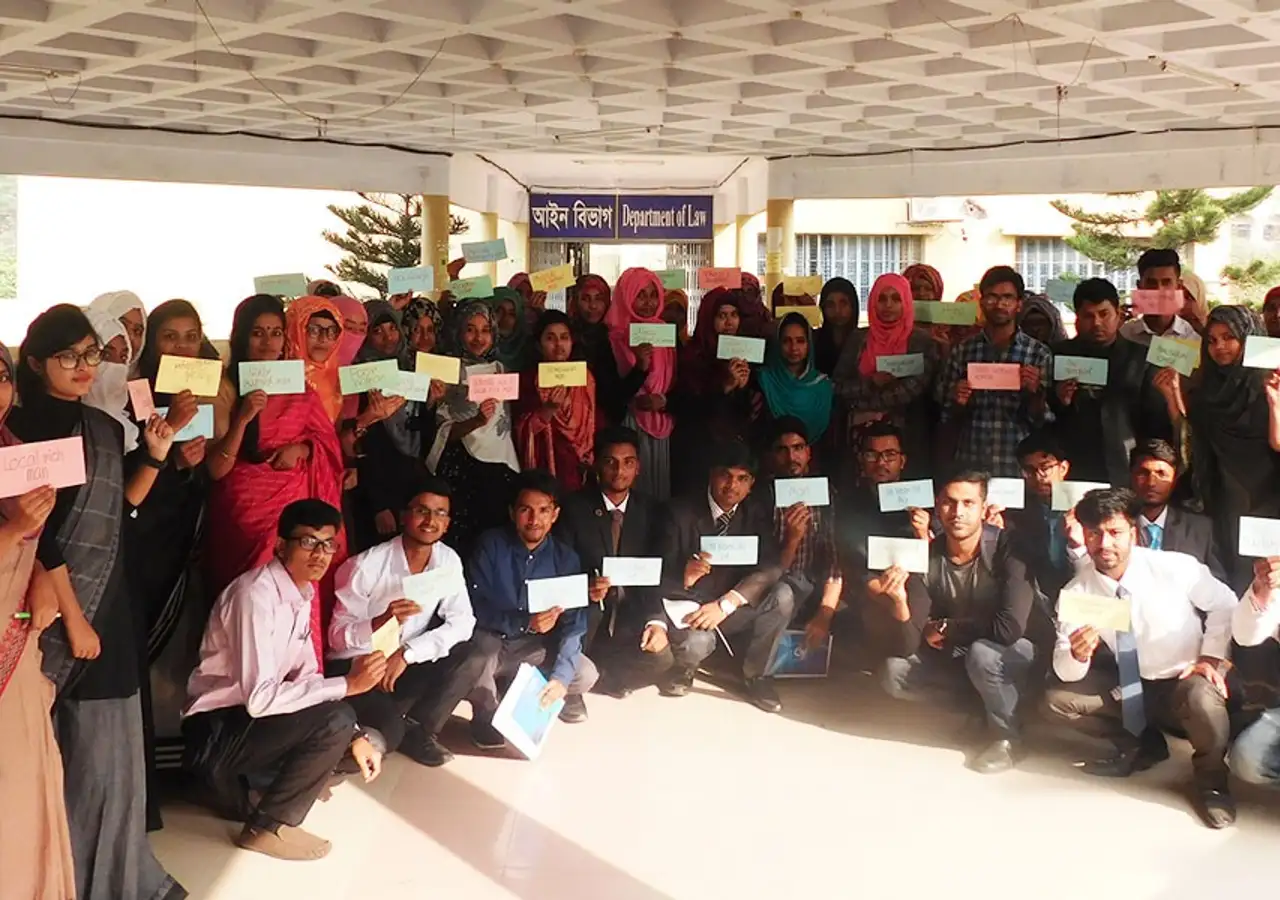
Progress to Date
BLAST has piloted previous versions of “SafePlus” programs with adolescent girls and women in Bangladesh - SHOKHI and Safe. The lessons learnt from Safe and SHOKHI, have informed BLAST’s core programme and testing SafePlus at a larger scale with a rigorous evaluation component. Previous evaluations of the “Safe” and SHOKHI programs demonstrated that SAFE had a substantial impact on behaviour around sexual and reproductive health, gender-based violence and traditional marriage practices while SHOKHI’s biggest success was establishing legal referral services and developing 10,000 changemakers, including paralegals and community health workers, in the community to secure women and girls’ rights in their neighbourhood. Findings from a randomised evaluation demonstrating the impact and cost-effectiveness of the innovation is awaited in 2025.
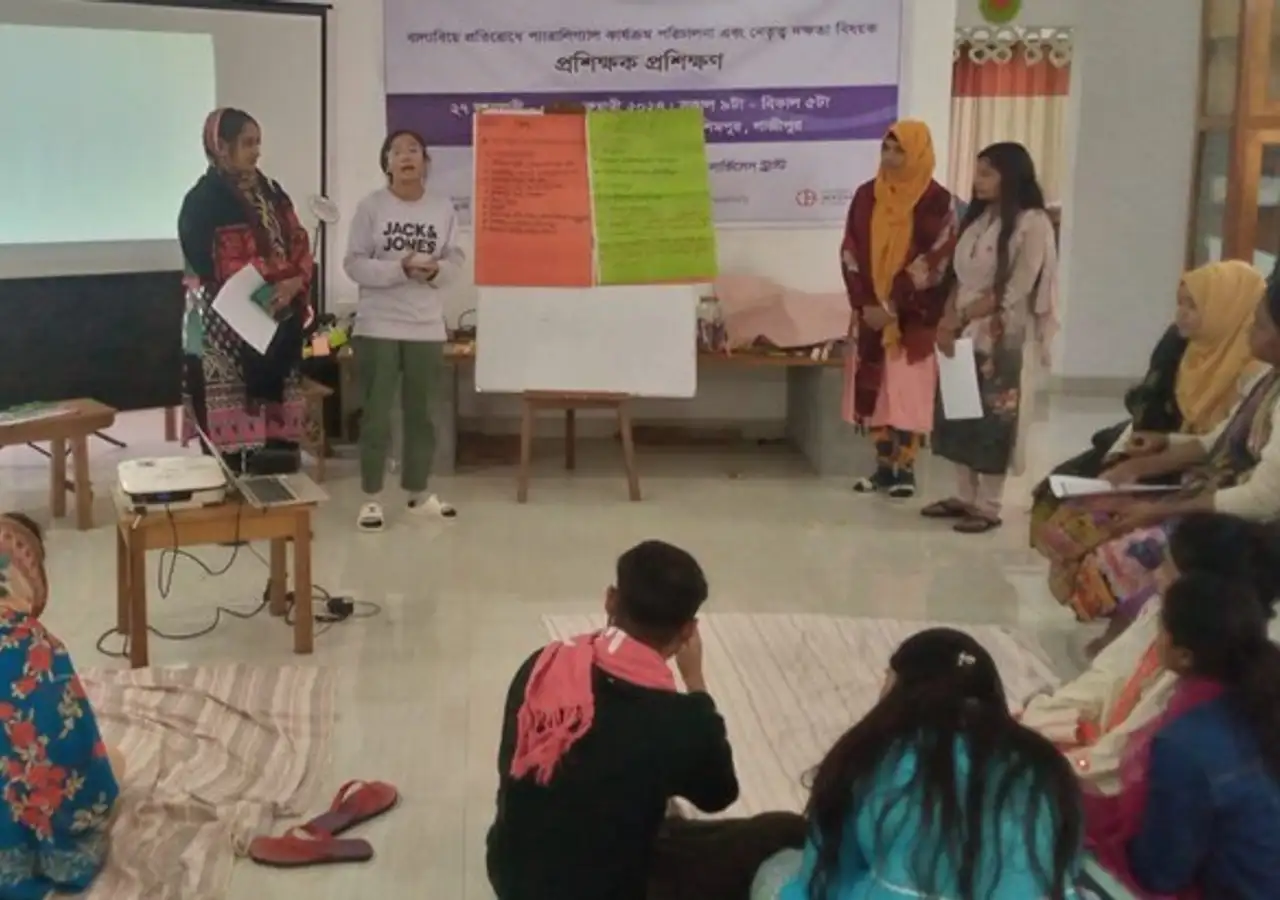
Why we invested
1. Reduction in female early marriage is a high impact outcome for young women, as recognised in GIF’s gender impact methodology. Delaying age of marriage has significant lifelong impacts, such as improved fertility outcomes, nutrition, health, education, labour and earnings.
2. Access to legal justice for women expands the scope of approaches explored within GIF’s gender sub-fund. Legal justice access as a pathway to deliver impact is complementary to GIF’s gender portfolio as the first deal which explores legal justice for women.
3. Expands the evidence base on “what works” to reduce female early marriage. By using a rigorous evaluation, the deal presents an opportunity to expand the knowledge base on effective approaches to reduce early marriage.
4. Strong local team with solid partnerships. BLAST is the largest legal aid organisation in Bangladesh led by Sara Hussain, a leading figure in the access to justice for women space who has played a pivotal role in bringing legal reforms in the country. BLAST has a strong local team with partnerships with community-based organisations and research partners.
BLAST in numbers
Households to benefit during grant period
Of women in Bangladesh marry below the age of 18
GIF grant to BLAST
Innovating for Gender Equality
GIF is pleased to partner with BLAST, the largest non-governmental legal services organisation in Bangladesh, which aims to provide communities with the tools to stop early marriage across the full continuum, from early intervention to legal response. Female early marriage is a complex and pertinent issue. In Bangladesh, early marriage is very closely linked to gender-based violence in communities, and leads to reduction in schooling, lowering of labour force participation and poor sexual and reproductive health outcomes. GIF’s partnership with BLAST will help to expand the knowledge base on what works to reduce early marriage.